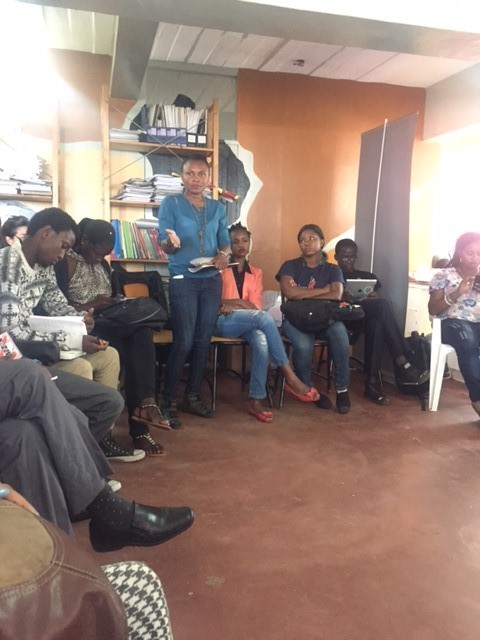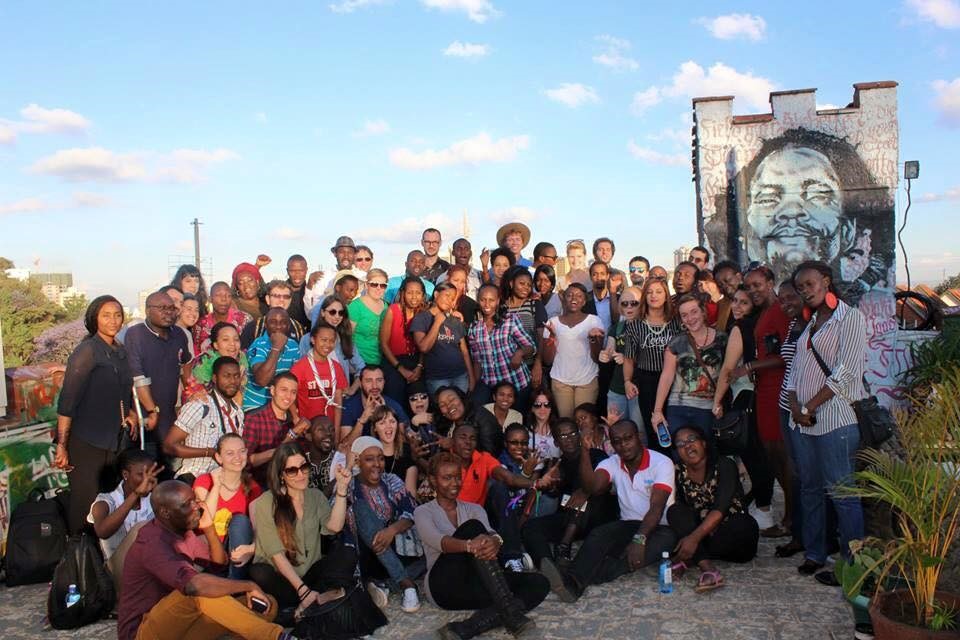During a training course in Nairobi last year I was once again reminded of the importance of women’s rights and global education.
Last November the Council of Europe organized the 11th Africa-Europe training course for youth organizations in dynamic Nairobi, Kenya. I had the honour of representing IFLRY in this course as a member of the Dutch Young Democrats. I was very excited to fly all the way to Nairobi and meet young, inspirational leaders from Africa and Europe. At the core of the training course stood the position of youth organisations in global education, within the Africa- Europe context. With a total of almost 100 participants across almost 20 different countries, we worked on projects and ideas that strengthen the relationship between young leaders in Europe and Africa. The training course provided in one of the focus points of IFLRY: building bridges across the world and promoting humans rights. Furthermore, IFLRY has created an Africa workplan 2016 where new alliances with African and liberal parties are the main focus.
During the training course we visited local projects in Nairobi. This included a visit to the Miss Koch initiative (misskoch.org). This organisation fights for a structural change in the social position of women. It was frustrating to learn how government and political institutions are still not fully cooperating with women’s organizations. Miss Koch empowers girls and women and stimulates them to participate in politics and the socio- economic environment. Miss Koch feel the need to organise activities like mentorships for young women and activities for upcoming entrepreneurs to empower young women but also to work on the social safety of these women. Changing the mind-set of young men and boys in order to improve the position of women is an ongoing struggle. Compared to the goal of gender equality in Europe, where we’re protected by civil institutions, in Kenya the battle is fought without a substantial civil or public society. Considering even in Europe men and women are still not fully equal, how could organizations like Miss Koch persevere? This is what the struggle in Kenya looks like.

But despite the differences in political and civil support, women’s rights are a global issue and a global challenge. During the course I had the opportunity to host an open space workshop. Our topic of discussion was global education and women empowerment. Differences between cultures, different norms and values, influence the way we look at the position of women worldwide. These differences can be addressed and bridged by global education. In our workshop we came to the conclusion that the battle for gender equality is a global issue. Logical as it may sound, women in most so called modern and progressive countries deal with the exact same issues like participation in the workforce and in politics as lesser developed countries. Differences in social structure between countries are mostly caused by tradition and culture. The low representation of women in the workforce and in politics in African and European countries was discussed in relation to traditional barriers and behaviour during the workshop. Stereotypes of men and women were taken as an example many times. People experience these stereotypes as a big obstacle for personal and professional growth. In some cultures, for example, men feel the cultural pressure to take care of their family. As a self-fulfilling prophecy men and women are likely to behave in this manner.
How could we increase awareness of human rights? Global Education is probably the best solution. It can create a better understanding of human rights on an international level and, more specifically, foster women’s rights.
In Nairobi we also had the opportunity to visit local youth who are advocating for youth rights in Kenya. As I am a women’s activist myself I was mostly interested in the position of women in Kenya and keeping in mind the position of women in Europe. I wanted to know what ‘their’ battle looked like. We met several young women who were eager to participate in politics but did not find a way to participate. At the same time politics is experienced as one of the barriers to participation of women. Simply for the reason too many men are involved and don’t feel attracted to gender related issues, like fostering women’s participation in politics. Here we see a vicious circle, constantly upholding the status-quo.
So how do we young leaders break through?
We should focus on the gender perspective in global education. It is an effective way to understand how the position of women is influenced by different norms and values. At the same time, it is a way to make men and women aware of these facts and empower them at a global level. We need a change in the global vision on how we think women should act and react in the international scene. We need global ambassadors, men and women, influencing these mind sets and breaking through the status- quo by using global education and teaching men and women, boys and girls, why gender equality is important for everyone.
www.ted.com/talks/michael_kimmel_why_gender_equality_is_good_for_everyone_men_included/transcript
When it comes to global education we can spend more time on the issue of behaviour in relation to gender. It’s about changing mind-sets and that is probably the most difficult aspect to influence. The best solution is education, starting now!
The 11th Africa-Europe course is such an event where this can be produced. I’ve met great people with whom I’m working on the organisation of an international event now about the position of women in politics. This is absolutely the added value of such events. When coming back to the question how we young leaders can break through the issue of gender equality, I’d like to advise young people around the world to keep meeting each other and discuss the topic of gender equality as part of global education.
Samira Rafaela is a member of the Dutch Young Democrats (Jonge Democraten). She holds the position of portfolio holder on Diversity and Participation and she’s the chairwoman of Team West- Africa. IFLRY. E-mail: samira.rafaela@jd.nl

